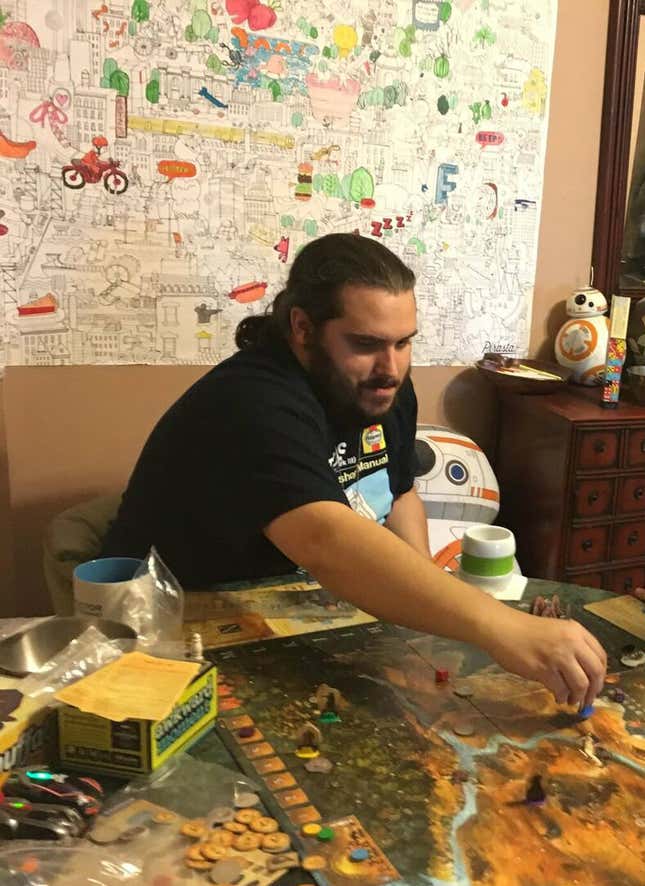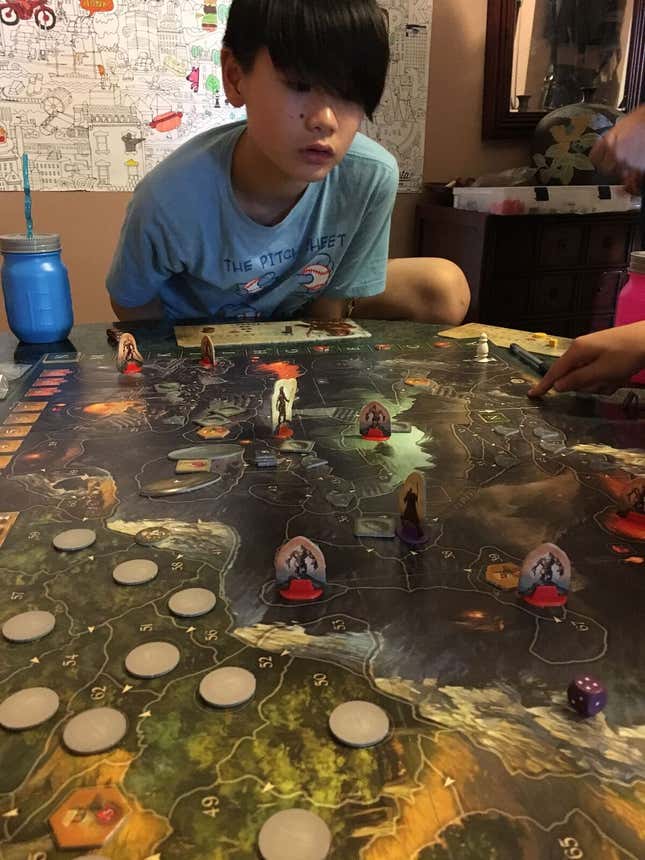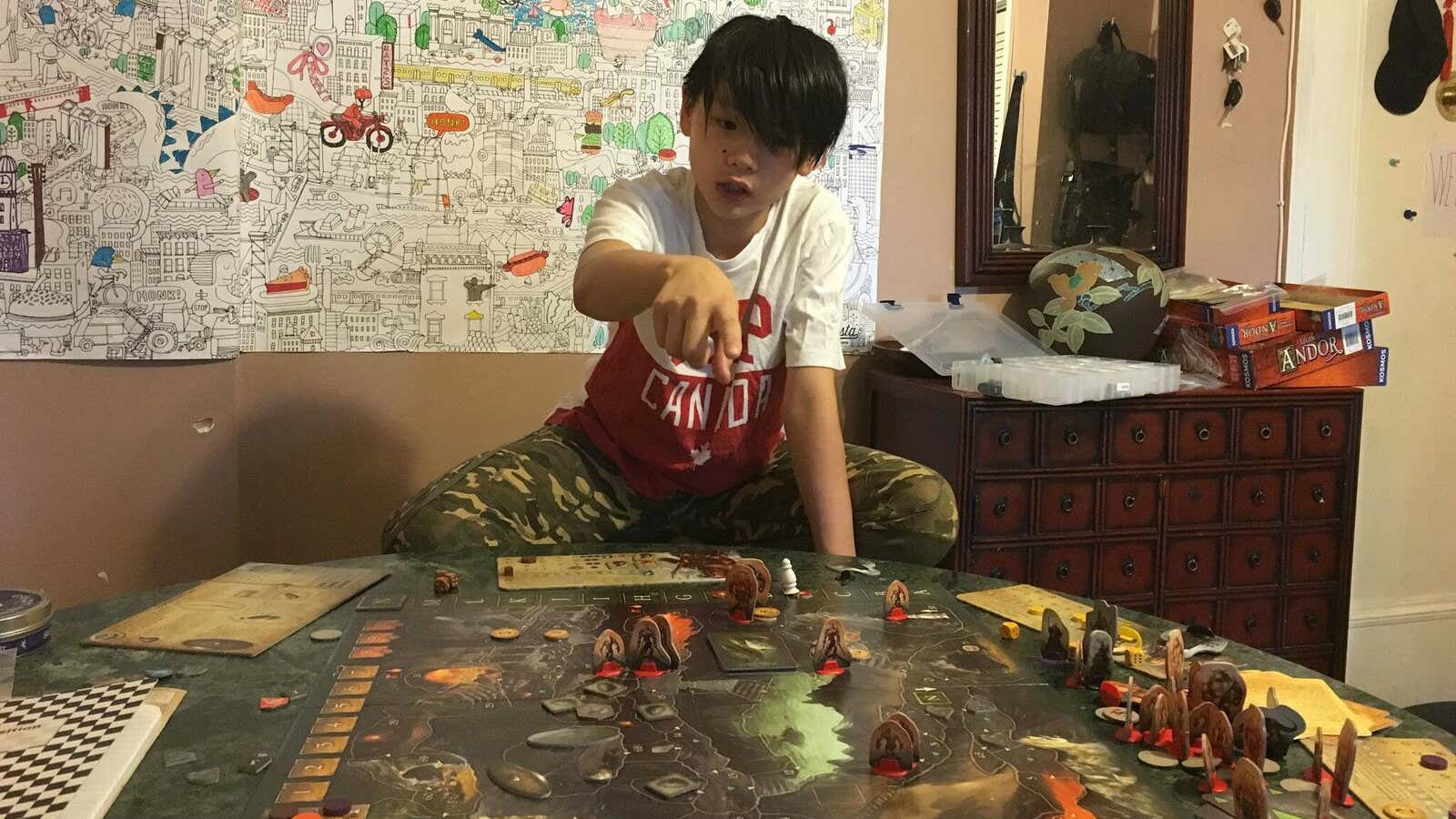Here’s a typical scene in my house: I bring out a new board game, and start reading the directions out loud. Within moments I would find that no one, not my 9-year-old or 12-year-old, is listening to me. Soon, I find myself demanding their attention to play, which feels just wrong. What’s worse, I frequently test board games as a part of my work and still hadn’t found a great way to introduce new games to my kids.
In the era of smart living, everything is meant to be intuitive, so we don’t read directions for anything—not for phones, toys, and especially not for video games.
In the past, parents had no trouble explaining turn-taking games with opportunities for strategy such as Monopoly, Scrabble, or Trouble. But as kids grow up and their appetites for fun further expand, they are excited by more complex activities such as role-playing games (RPG,) which come in the form of video games, such as Final Fantasy, but also are experienced as tabletop board games such as Catan and Betrayal at House on the Hill.
Unfortunately, instructions for RPGs are exponentially longer. Often, setup requires many pieces and the rules have conditions since there’s a running narrative, plot twists, and lots of decision-making. Moreover, many of these games can cost over $40, and this doesn’t include the expansion sets for the more popular ones. Learning a new game is a bit like taking on an after-school sport but on a smaller scale. Suffice it to say, learning to play an RPG properly is an investment.
In New York City, there are already a few game-playing centers where parents pay to have their children learn games such as Forbidden Island, Ticket to Ride, and King of Tokyo. At the Brooklyn Strategist in New York City, the center charges $340 for a once-weekly session with other children for a semester. At these places, instructors may sit and play with the kids while teaching them or circle around the tables to make sure the kids are playing correctly and courteously. They also model game-playing manners akin to good sportsmanship in an athletic setting.
Yes, these are just games and they are supposed to be “fun,” so why would anyone pay anyone to teach and play with our children? Many parents don’t know that investing in RPGs is a great opportunity to teach kids valuable skills including communication, strategic planning, flexible thinking, and perspective-taking. In addition to challenging the mind, they allow kids to flex their social and emotional skills. However, for that very reason, adult support can be a golden opportunity to show kids how to express their emotions and interact with peers in a constructive way.
Since I didn’t live near a game center that had these sessions for kids, I worked with a few parents in my Queens neighborhood to create a weekly scheduled game session. But it didn’t work out. Most of the kids were distracted and all of the parents, including me, couldn’t dedicate themselves to really be that anchor that held the kids together.

Thus, I hired a friend, Doug Mercier, an IT professional by trade and an avid video gamer and board game geek to come to my home and teach my kids how to play. I, too, would sit in on these sessions as well to learn how to play so that I could avoid both reading the directions and teaching my kids the game.
It was interesting to watch Doug work. Even though he had never done this before professionally, he did none of the things that I usually do before I set out to play a game with my kids.
First, Doug would always come prepared. If he wasn’t familiar with a game, he would read through it, watch videos about it, play it with his board gamer friends before bringing it to my kids. This allowed my kids to learn how to play much faster and enjoy the game more.
I also noticed that they treated him differently. Doug would set up the game and they would either watch patiently or quietly move away and return when called. Doug would tell them how to play as he played with them, and if they were about to make a bad decision, the kids never took it personally when he would say, “That might not work out for you.”
Taking advice from Doug was easier than taking advice from their mother. Oftentimes, my kids would become defensive or accuse me of helping the other one too much. Not so with Doug, because the kids knew he was paid to be there and that he was there to help everyone. Friends would visit and play in those sessions and it never mattered if the friend knew the game. It was an implicit rule that novices would be helped by everyone; it just got the game going faster and that was more fun.
I had missed a few rounds of a great game they had been playing, Legends of Andor, an RPG that increases in complexity as you advance. When I joined them again at the fourth round, I was completely lost and my kids ended up walking me through each step. I couldn’t stop asking, “How did you know how to….?” It was such a stress-free way to play when I didn’t feel so responsible for success.
More importantly, listening to their dialogue was fascinating. I saw individual strengths emerging within the group dynamics. My eldest likes to strategize, and I often found him very strong while playing cooperative games where players’ moves benefit the entire group against a fictional villain. My youngest showed off his excellent memory of maps and rules. He was very helpful with rule interpretation as well as rejecting previous plays to help with decision-making.

Moreover, like many RPGs, this game, especially after getting the expansion sets, contained over a 100 small pieces representing energy units, medicine, money, shields, etc. The kids had to pay careful attention so that pieces wouldn’t go missing. Unlike building with LEGO, you can continue playing when the piece was missing, but gamers don’t like that. Missing a piece in a role-playing game is like going on stage with less props. It’s not fun. Thus, the kids are really motivated to set up and clean up with care.
We don’t know how long Doug will be working with us but we are already making plans for summer and fall. There is no question in my mind that just like soccer or piano, any kid in this game group will build a foundation of skills that they might not have acquired in school. The best part about this is that there isn’t a costly, stressful end-of-the-year performance in front of a bunch of strangers. Rather, the “performance” can be done at any time, in the comfort of your own home. You can just ask them to show you what they’ve learned: All you have to do is sit down and play with them.




